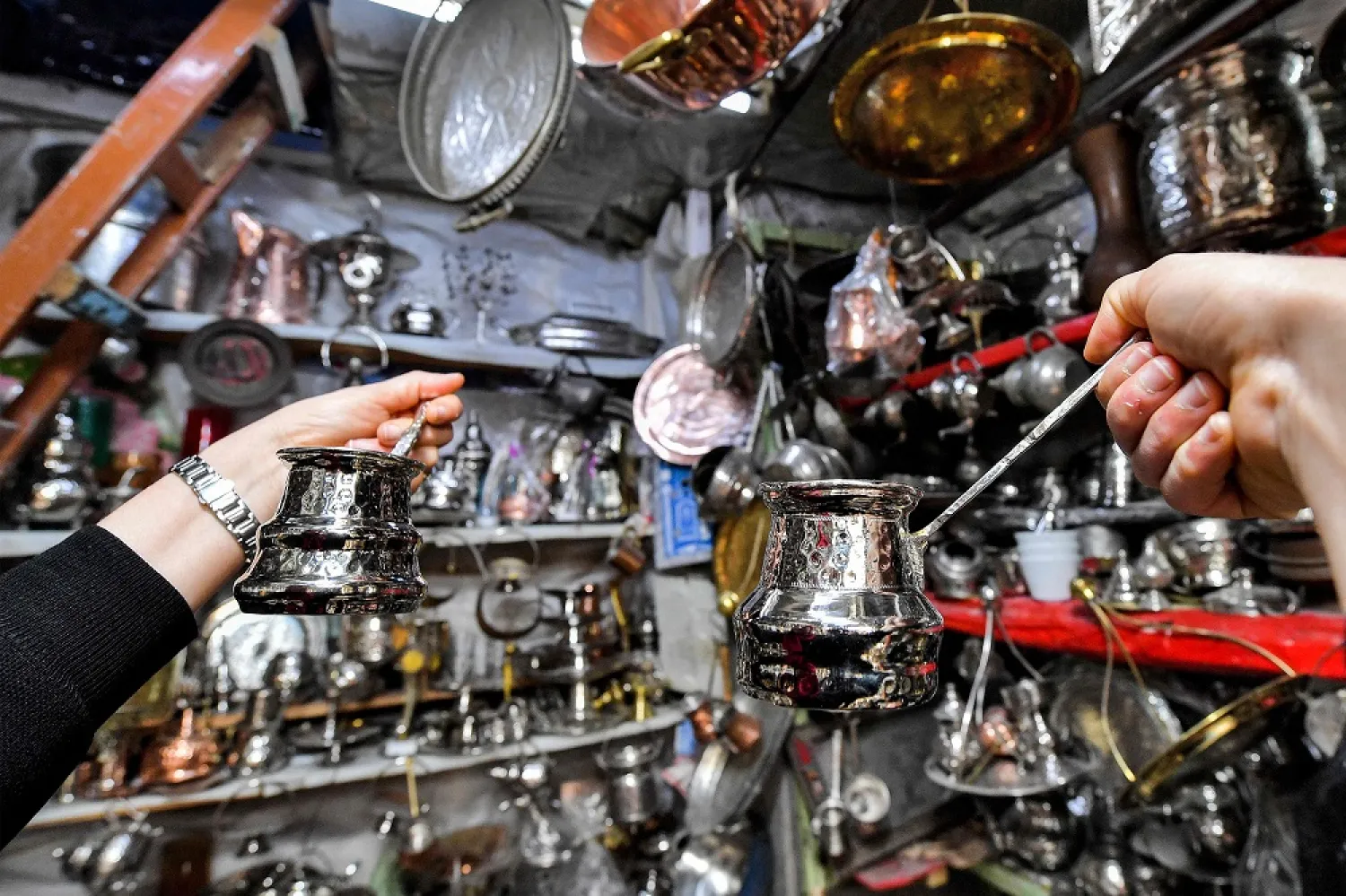The eve of Ramadan is a frantic time for Tunisian coppersmith Chedli Maghraoui, who skillfully puts a new shine on families' favorite kitchenware before the Muslim holy month starts.
From couscous pots to beloved tea sets, the metalware gets a professional polish from the 69-year-old craftsman who labors away solo at his workshop in the old city of Tunis.
So great is the pre-Ramadan rush that he has to politely tell customers he is just unable to work any faster: "I can't do it -- I still have other orders and, as you can see, I'm working alone."
Maghraoui scrubs items and uses a method known as hot-dip tinning where he coats the copper with a thin layer of tin to stop metal oxidation -- a process that makes pots gleam like new.
As he reconditions one well-loved pewter piece, he fans an oven fire that heats a pot with the object inside, before brushing it and plunging it into a large bucket of water.
Maghraoui says he is proud to be among the few still practicing the time-honored craft in the ancient North African city: "It's a tradition that has existed for centuries and it's still alive."
Tunisian women often receive copper or white copper gifts when they get married, or inherit the items from their mothers. Many bring their beloved heirlooms to Maghraoui to protect them a little longer.
"I get a special feeling when I use my shiny pot during Ramadan", said Sana Boukhris, 49, an accountant. "The tradition reminds me of good times as a child, when my mother would prepare for the holy month.
"There is blessing in these things I inherited from my mother."
Cracked skin
Dalila Boubaker, a housewife, said she could only afford to get two pots polished up for Ramadan this year as households across Tunisia struggle with inflation and high unemployment.
"Everything has become so expensive," sighed Boubaker, with the cost for a polish job now ranging from 20 to 200 dinars ($6-$65) per item, depending on the item's size and shape.
Abdejlil Ayari, who has worked as a coppersmith in the medina for 48 of his 60 years, said the run-up to Ramadan was intense every year.
"People prepare to have their kitchenware treated before Ramadan so it looks impeccable for the whole month, so the kitchen looks good and women enjoy their pots," he said.
Trade is also brisk for beautiful old pieces in the Souk En-Nahhas (copper market) where around 50 shops sell reconditioned coffee makers, teapots, incense burners and small cups.
Demand is so high that "we're not taking orders anymore," said Mabrouk Romdhane, who at the age of 82 owns three such stores in the market in the heart of the medina.
Ayari said he learnt the trade from his father and started before he was even a teenager, but he now worries that few young people want to follow in his footsteps.
Maghraoui, who bought his workshop 20 years ago from someone who had inherited it but didn't want it, agreed.
"Each death among my colleagues is a loss for this profession and a step towards its disappearance," he said.
Maghraoui held out the palms of his hands, the skin cracked and blackened from his trade, and said: "This generation wants an easy job and doesn't like having this."









